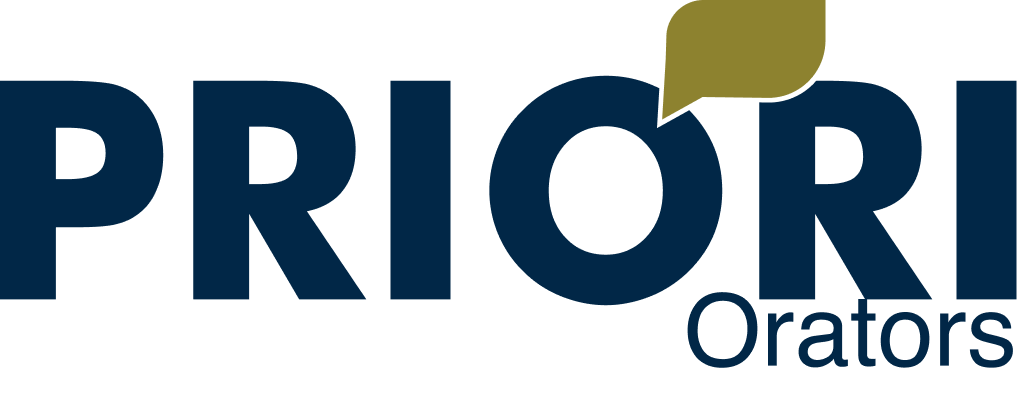At Priori Orators, we know that connecting meaningfully with an audience requires far more than professional experience or polished speaking skills. For speakers addressing healthcare topics, success often lies in balancing clinical knowledge with genuine emotional connection. Audiences expect credible facts—but they also crave authenticity, human stories, and relevance, especially when conversations touch deeply on health, medicine, and personal well-being.
Healthcare speakers face a unique challenge: translating technical knowledge into human experiences. Whether addressing aspiring nurses, recovery groups, or seasoned medical professionals, the ability to forge a real connection determines how deeply a message is received—and remembered.
Let’s explore some key ways healthcare speakers can create lasting impact.
Establishing Trust Through Relevance
In healthcare, trust is everything. Yet today, public trust in health systems and institutions is increasingly fragile, often eroded by misinformation, lack of transparency, and systemic challenges.
One of the most effective ways to rebuild trust during a talk is through relevance. Audiences engage more when speakers reference real-world situations they’ve witnessed, heard about, or experienced themselves—particularly on sensitive issues like patient safety, ethics, or emerging health crises.
For instance, discussing the opioid epidemic is more powerful when anchored to real examples: the waves of overdose deaths, the human impact on families, and the systemic responses over time. Instead of merely presenting statistics, effective speakers humanize the issue—highlighting the need for preventive education, ethical pharmaceutical practices, and community healing.
Grounding talks in current realities keeps conversations from becoming abstract or detached. It shows that the speaker understands both the facts and the human stakes.
Communicating Clearly Without Overwhelming
A common pitfall in healthcare talks is the temptation to overwhelm the audience with jargon. At Priori Orators, we teach speakers to distill complex ideas using relatable analogies, simple language, and vivid examples.
Rather than listing technical terms, speakers should explain how medical concepts affect everyday life. Storytelling, relatable metaphors, and clear visuals help maintain both accuracy and audience engagement.
Remember: clarity builds confidence. When a listener feels they understand the message, they are far more likely to trust—and act upon—it.
The Power of Lived Experience
Nothing connects like a real story.
Speakers who share personal experiences—as a doctor, nurse, caregiver, or even as a patient—bring authenticity that no textbook can replicate. Stories of triumph, struggle, resilience, and hope make complex healthcare issues relatable and inspire empathy.
For example, a speaker who once worked in an emergency room might describe the emotional weight of treating overdose victims during a public health crisis. Another might share how evolving treatment protocols changed the outcomes for their patients over time. These stories bridge the speaker and audience, creating a bond built on shared humanity.
Even if you don’t have direct clinical experience, personal connection to healthcare—whether through caring for a loved one, conducting advocacy work, or community service—can create authentic, powerful narratives. What matters most is honesty, empathy, and a sincere desire to connect.
Using Real Examples Responsibly
Real-world examples help audiences visualize complex topics—but they must be used responsibly. At Priori Orators, we emphasize education over sensationalism.
When discussing challenging subjects like cancer treatment, for instance, it’s important to balance reality with sensitivity. Audiences appreciate honesty about difficult treatments like chemotherapy and the potential side effects, but they also need hope, context, and respectful framing.
Always clarify when you’re sharing publicly available facts versus personal opinions. Avoid fear-based language, and focus instead on empowering the audience with knowledge.
Adapting Tone to the Audience
Every audience is different—and great speakers know how to adjust without diluting their message.
Speaking to young medical students? Use humor, energy, and an emphasis on possibilities. Addressing caregivers or survivors? Adopt a tone of empathy, validation, and encouragement.
Reading the room and adapting the emotional tone makes all the difference between a talk that’s merely heard—and a talk that’s truly felt.
Ready to master the art of speaking from the heart while grounded in expertise?
At Priori Orators, we believe that healthcare speakers have an extraordinary opportunity: to turn clinical information into human transformation. When you combine personal storytelling, clear communication, real-world relevance, and emotional intelligence, you don’t just deliver a presentation—you create a connection that endures.







